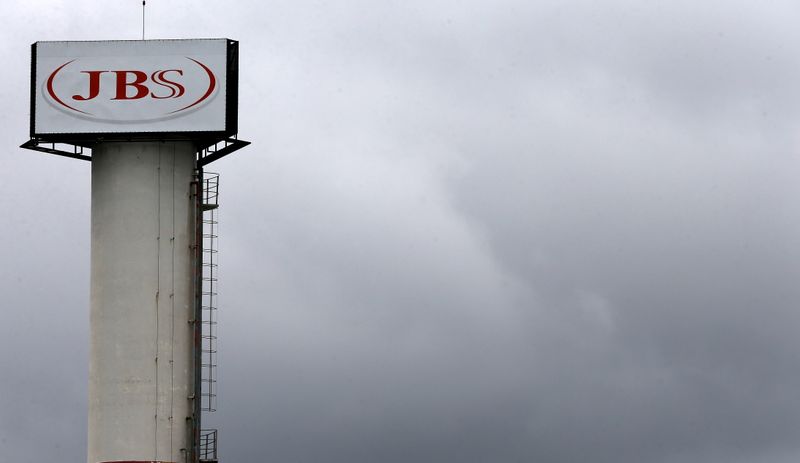By Ana Mano
SAO PAULO (Reuters) -Brazilian meatpacker JBS SA anticipates strong demand for meat this year from China as the Asian country’s pork herd is still recovering from an outbreak of African swine fever which disrupted domestic production.
JBS executives, speaking on a conference call after the company published results, said it was not entirely clear when China would be able to fully recover its herd, meaning the country will continue to rely on food imports.
They said the situation would benefit JBS’ exporting plants in the United States and Brazil.
China was the destination of about one-third of JBS’ exports last year, and there’s room for growth, André Nogueira, CEO of the company’s U.S. operation, said during the call.
JBS’s fourth-quarter profit rose 65% from a year earlier, boosted by strong exports into China, steady demand for beef in the United States and good sales volumes in Brazil. The result in reais was bolstered by a sharp devaluation of Brazil’s currency.
In early trading on Thursday, the company’s shares rose by 2.8%, making it the benchmark Bovespa index’s second best performer.
Company executives said JBS might use its strong cash position to grow via acquisitions, but they declined to elaborate on where and when these might occur.
As countries recover from the coronavirus pandemic, JBS is confident meat demand will continue to be strong in most of the markets where it operates.
In Australia, however, the operational outlook will continue to challenge JBS because of historically high cattle retention by farmers which is reducing local beef production.
In its home market Brazil, high corn prices will continue to pressure margins of JBS’ Seara processed foods division, executives said.
(Reporting by Ana ManoEditing by Chizu Nomiyama and Jane Merriman)























